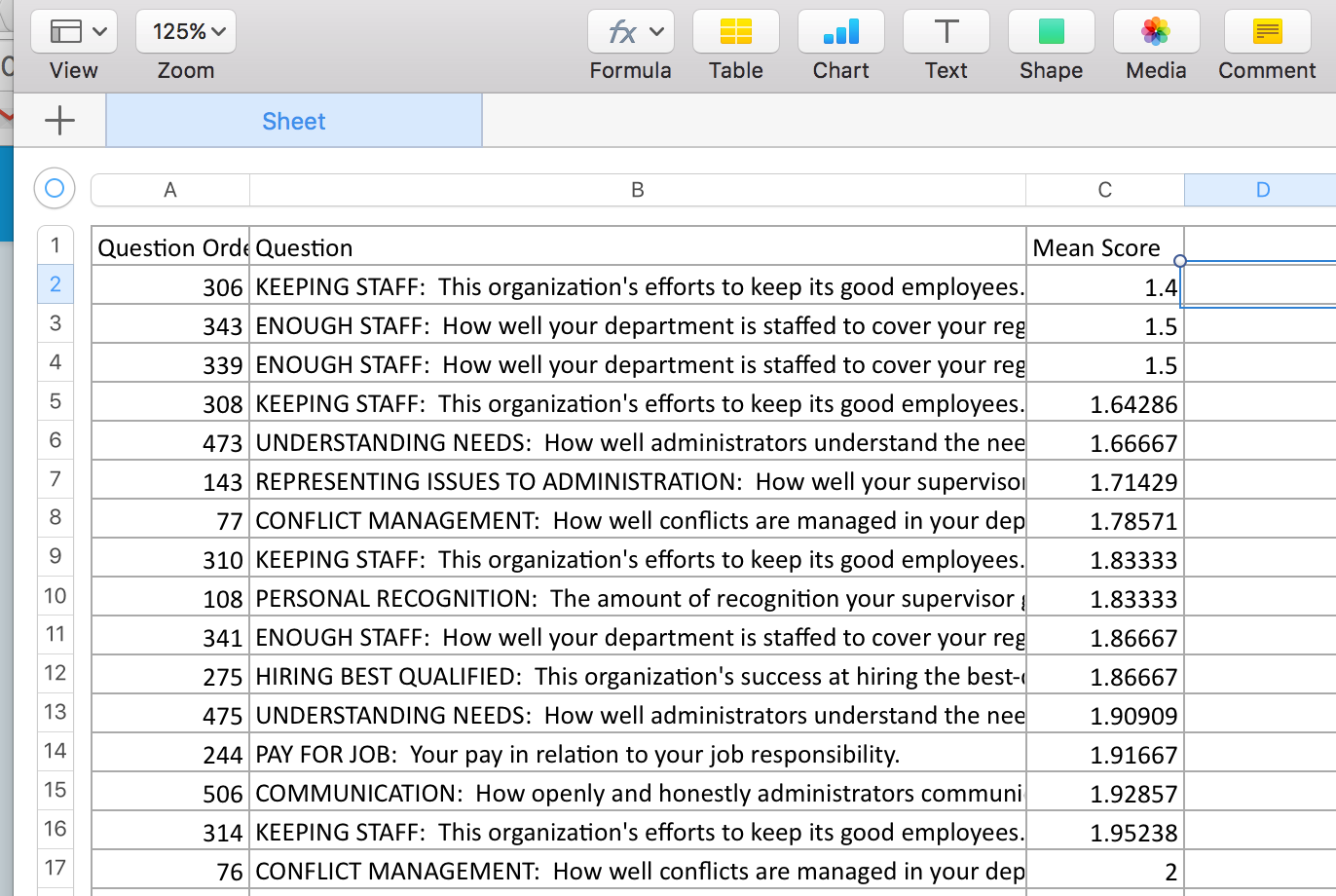Downloading Slice Content¶
Warning
This help isn’t complete. It may even look terrible. If you want to work on it, see How to Contribute. You can also ask for help in the Juice Slack #documentation channel.
Any slice can make its content available as a downloaded file.
Supporting downloads in the data service¶
Downloads are automatic for table slices. To enable downloads, import the
DownloadTable mixin and make sure it is the class you inherit from before
your base service class.
from dataservices.mixins import DownloadTable
class TableService(DownloadTable, BaseService):
"""
Creates a table
"""
def __init__(self, *args, **kwargs):
...
In addition, in stack.yaml, add the “download-data” command in the included commands for the slice.
include_commands:
- "download-data"
A download button will appear in the footer of your slice and the full content of your table will be downloadable.

The default downloaded content is a Microsoft Excel file.

Customizing the data service when running a download¶
Sometimes the data service needs to be different when running a download. A
common case is showing a limited number of table rows in the browser but
allowing all rows to be downloaded. When running a data service, self
.download will be true when you are generating data for a download.
recipe = ...
# limit a table to showing only 10000 rows
# when displayed in the browser
# but allow all rows to be downloaded
if not self.download:
recipe = recipe.limit(10000)
Customizing download files¶
Any slice can create custom download content by supporting all three of the following methods on the data service. The data service will run normally and create a response. After that response is created, you can transform it into the content you want the user to download.
download_filename()¶
Returns the filename of the download. The current title of the slice at the
time the user clicked the download button is available as self
.params['downloadFilename']. The download_filename provided with the
DownloadTable mixin is here:
def download_filename(self):
filename = self.params['downloadFilename'] if 'downloadFilename' in self.params else 'download'
filename = filename.strip()
filename = re.sub(r'[,;"]', '', filename)
return '"' + filename + '.xlsx' + '"'
If you use the self.params['downloadFilename'] it’s necessary to clean it
by removing commas and semicolons to avoid cross-browser issues.
download_mimetype()¶
You must supply a mimetype for the downloaded content. This will
determine the file type of your content. The download_mimetype() supplied
with the DownloadTable mixin is:
def download_mimetype(self):
return 'application/vnd.openxmlformats-officedocument.spreadsheetml.sheet'
For a csv download, you would add the following:
def download_mimetype(self):
return 'text/csv'
download_content()¶
Finally, download_content uses data from the regular data service
response (which is available in self.response) to create file content.
def download_content(self):
data = self.data_for_download()
workbook = get_virtual_workbook(data)
return workbook
For a csv download, you do not need to create a workbook. Instead, you will need to transform the data into a string that can be used as the file content.
def download_content(self):
data = self.data_for_download()
multi_line = ""
for i, item in enumerate(data):
# allows for rows
if i > 0:
multi_line = multi_line + '\n'
# make sure all values are converted to a str type
new_line = ','.join(map(str, item))
multi_line = multi_line + new_line
return multi_line